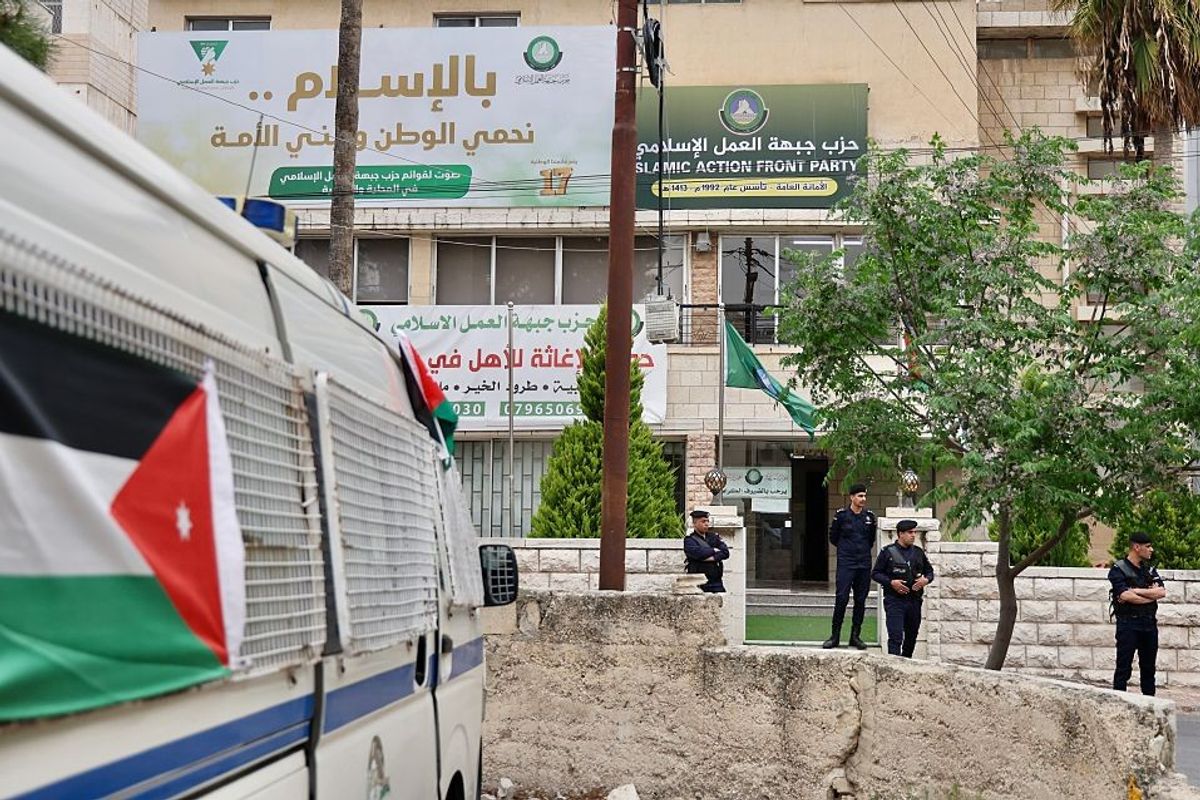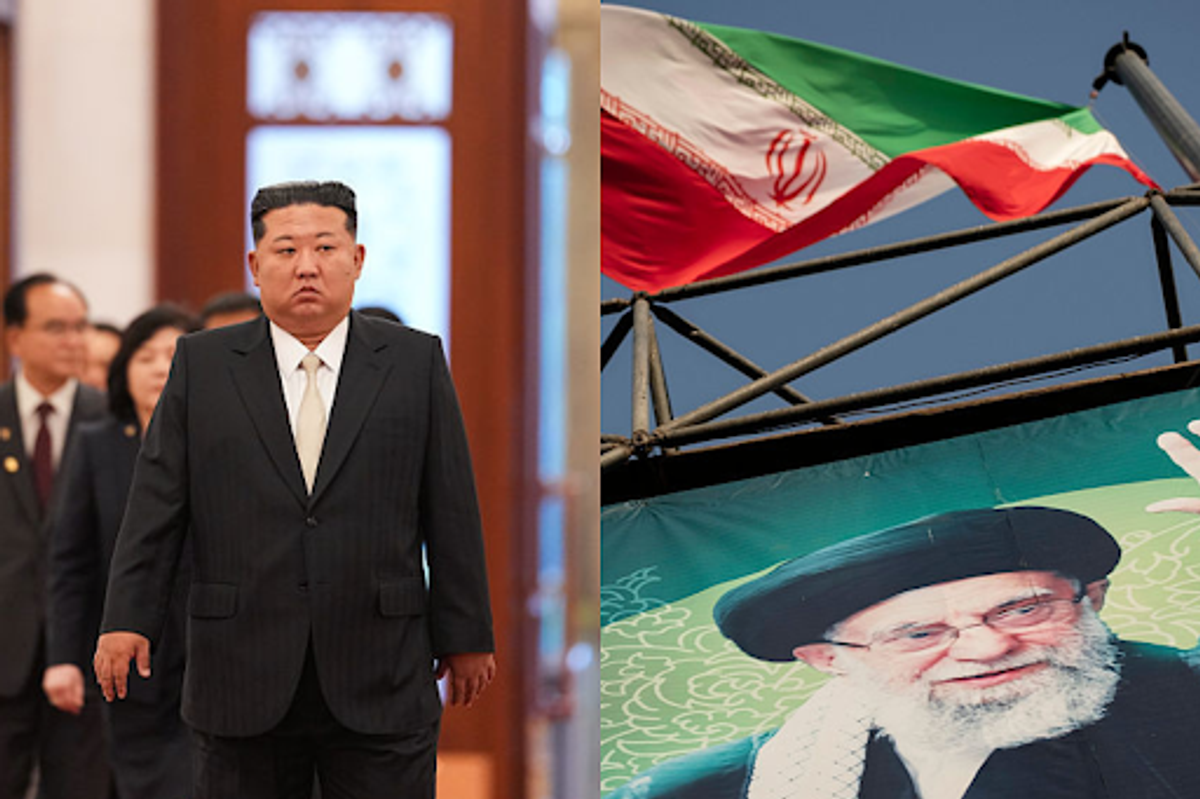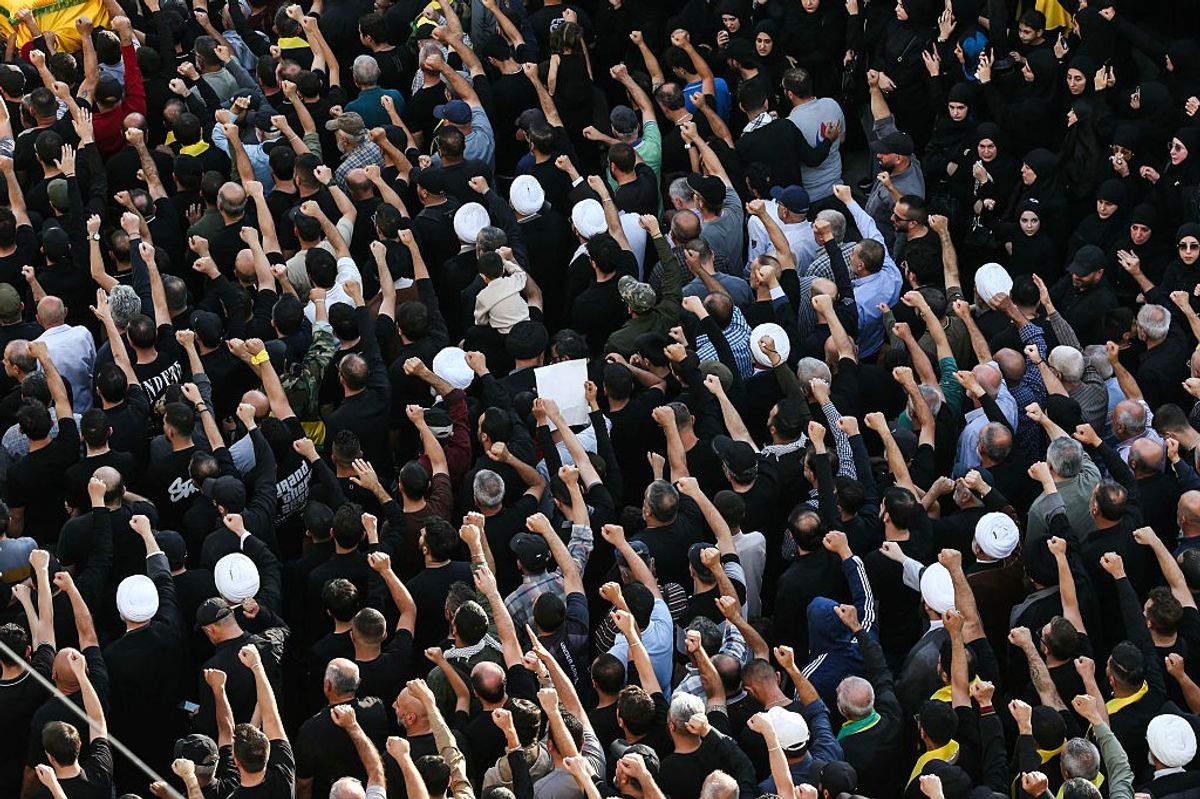EXPERT ANALYSIS — Israel’s campaign against Hezbollah — which has included a stunning pager and walkie-talkie sabotage attack, and airstrikes that have taken out a significant number of the group’s top commanders — has entered its next phase: a ground incursion into Lebanon.
The Israeli military announced early Tuesday that a ground operation had begun, with troops crossing into southern Lebanon. The Israeli Defense Forces (IDF) issued a statement saying the operation would be “limited,” and aimed at targets that it said “pose an immediate threat to Israeli communities in northern Israel.”
A few hours earlier, Israel’s cabinet formally approved the ground operation, according to Israeli media. Israeli reservists were gathered at assembly points in northern Israel, and the Israeli military declared three communities along its northern border a “closed military zone.” Israeli commando units reportedly conducted small-scale raids into Lebanon in advance of the invasion, to identify Hezbollah targets near the border before the wider operation began.
Israeli Defense Minister Yoav Gallant told local council heads in northern Israel that the next phase of the war was being launched to halt Hezbollah’s cross-border rocket attacks and allow displaced Israelis in the area to return home. "To return the northern residents, we will activate all our capabilities, including you," Gallant told soldiers stationed along the Israel-Lebanon border. Israeli authorities say some 70,000 residents of northern Israel have been driven from their homes due to Hezbollah attacks over the past year.
The Israeli invasion of Lebanon is the first since 2006, when Israeli forces moved against Hezbollah but then became mired in weeks of fighting, during which 121 Israeli troops died. Officials say a ground operation now would focus on clearing out Hezbollah infrastructure near the border – tunnels, rocket launchers, and weapons caches – in a bid to degrade the group’s capacity to attack the Israeli communities in the north. An Israeli official familiar with the plans said ”the understanding is that they are not going to do another Gaza,” suggesting military action on a much smaller scale compared to the campaign against Hamas.
The Cipher Brief turned to several experts - former mideast envoys, CIA station chiefs and others - to discuss what Israel might gain from a ground operation into Lebanon, as well as the potential of an invasion.
THE CONTEXT
- Lebanon’s Iran-backed militia Hezbollah stepped up its rocket, missile and drone attacks into northern Israel in the immediate aftermath of Hamas’ October 7 attack against Israel.
- Roughly 70,000 people have been displaced from homes in northern Israel since the October 7 attack, according to officials. The U.N. reports that more than one million people in Lebanon have been uprooted in the same time frame, though most have evacuated as a result of the latest Israeli airstrikes.
- Earlier this month, Israel declared that stopping Hezbollah’s attacks and returning displaced residents to their homes in northern Israel was an official war aim. Previously stated goals had been limited to the campaign against Hamas and the return of hostages from Gaza.
- In the last week, Israel has launched hundreds of airstrikes on Hezbollah targets in Lebanon, the most intense barrage since the 2006 Lebanon War. The airstrikes killed at least seven top Hezbollah commanders within a week, including the group’s leader Hassan Nasrallah, who was killed in a strike on Hezbollah’s headquarters in Beirut. Last week’s strikes killed almost 700 people, according to Lebanon’s health ministry.
- Earlier this month, Israel carried out a major sabotage attack against Hezbollah in which it planted explosives in pagers and walkie-talkies used by the group’s fighters and then detonated the devices.The explosions killed at least 42 people and injured thousands more.
- Israel launched what it called a "limited" ground operation into Lebanon early Tuesday. Israeli media reported that Israel’s cabinet had approved the operation only a few hours earlier.
THE EXPERTS
The following answers have been edited for length and clarity.
Doyle: The advantage of a ground operation for (Prime Minister Benjamin) Netanyahu is that he will do the best he can to clear the areas from which the shorter-range munitions have been coming into northern Israel. This has been going on for many, many, years – the exchange of rockets and munitions over Israel’s northern border.
And I think it's really important to keep in mind what Netanyahu said on October 9th last year, two days after the Hamas attacks, when he said Israel would “change the Middle East.” We should take him at his word. Everything he has done since that time has shown that he has every resolve to dismantle as best he can Hamas in Gaza and in the West Bank, and elsewhere. We've already seen evidence of Israel going inside Iran in pursuit of Hamas leaders.
And now no one should doubt his determination to bring as much distance between Hezbollah's capabilities and its capacity to harm Israel.
And so what we're seeing with the ground operation is, you begin with the air operations, you go in with the other capabilities – the exploding beepers, the bombings and targeted killings – and now it's about clearing. The Israelis and others have known for a very long time where Hezbollah’s munitions are. As far as how long the Israelis might stay, in these operations you don't know when you're going to be have the area cleared. And it depends on what the objective is – is it to clear two kilometers, three kilometers, 5, 8, 12?
But if you go back to the 9 October statement from last year, and also to what he said at the UN just the other day, the Israelis are not done. They're not stopping, they're not asking for permission. And we can expect more of that.
Grappo: I think that in order for the Israelis to have the level of certainty they would like to have that this southern area (in Lebanon) does not pose a threat, they might feel they have to carry out a ground invasion of the south of Lebanon. That's not to say that they could not achieve the same objective without doing that.
But they have been preparing for the ground option as well. And of course, that will then put this on a much different level. And my suspicion is that at that point, Hezbollah will begin an all-out war against Israel in the sense of dramatically increasing the number of missiles and rockets and drone attacks on Israel proper all over the country and not just in certain targeted areas, which they've begun to do in sporadic fashion.
Hezbollah is a very resilient group. But their confidence level, I think, has taken a huge hit.
Ross: The upside would be that Israel can dismantle any remaining Hezbollah infrastructure below the Litani River. By doing so, the Israeli government and military can provide much greater reassurance to the Israelis who want to be able to return to their homes in the north, but fear Hezbollah will be able to recoup and at some point be able to carry out their own October 7.
The downside is that Israel goes in and can’t leave; that it allows Hezbollah to again claim the mantle of resistance to Israel as it is occupying Lebanese territory—something that even Lebanese who are not fans of Hezbollah will reject. Israel in the past found it easy to get into Lebanon and hard to get out.
If Lebanon is actually reasserting its sovereignty over all its territory and will enforce it in demonstrable ways, that could be a necessary starting point. The US should make clear that if United Nations resolution 1701 is now going to be implemented for real, and Hezbollah is denied any military presence or the introduction of any weapons into the zone below the Litani River, and these terms are violated, that America would back the use of Israeli force in response to the violations. That will be far more credible now than in the past.
Martin: The ground attack so far seems limited to mostly raids to gather intelligence, which can certainly make for a more effective ground campaign. Of course, there’s always the possibility of someone from a raid force getting captured, which can create issues.
If a larger operation with a more sustained presence were contemplated, it could have the advantage of actual control over an area, such that an enemy can’t move around between air strikes. It can have the severe disadvantage of requiring considerable force to pacify large areas. The U.S. has learned the hard way, at least twice, that invasions can be easy but occupations are almost always hard.
Israel does not have an unlimited arsenal and certainly not an unlimited number of personnel. A large ground force presence in Lebanon would probably be very difficult to sustain.
Goff: I think there are several worries in a ground operation. One, for the Israelis, involves higher casualties. Going into southern Lebanon has never been an easy endeavor, and it's never really worked out that well for the Israelis. In previous incursions, each time the Israelis go in, they kind of achieve what they set out to do, which is to push Hezbollah back, to destroy Hezbollah combat forces. But every time, it causes a lot of pain and heartbreak back in Israel because of the casualties. Israel is a small country where what might seem like small casualty numbers to the West resonate in a big way.
And remember, on the home front, the internal political war in Israel, that is kind of on hold as the Israelis unite to deal with Hamas and Hezbollah and Iran, but it's simmering still. So an incursion into southern Lebanon will have not just military ramifications for Israel, there will be political ramifications as well.
And while the Israelis have really put on an intel show as it were, in taking out Hezbollah military leadership, I'm sure there are still many Hezbollah leaders spoiling for a fight. They look at a ground incursion as the great equalizer between their forces and the Israelis. While the Lebanese people will be caught in the crossfire and will surely be made to suffer, Hezbollah may welcome an incursion.
Read more expert-driven national security insights, perspective and analysis in The Cipher Brief.
It’s not just for the President anymore. Cipher Brief Subscriber+Members have access to their own Open Source Daily Brief, keeping you up to date on global events impacting national security. It pays to be a Subscriber+Member.













